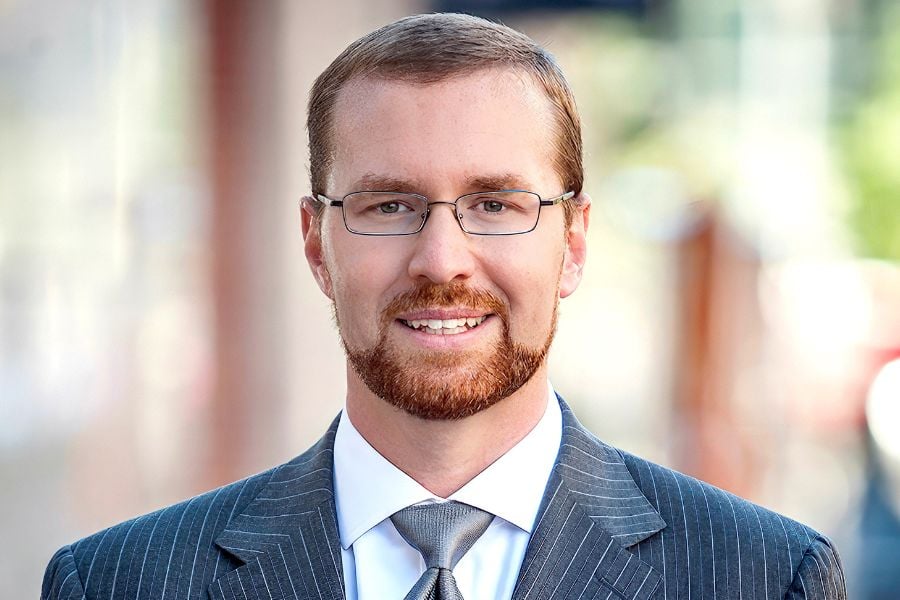

Some call it ESG, which stands for environmental, social and governance. It used to be called SRI, short for socially responsible investing. Even longer ago, proponents referred to it as CSR, or corporate social responsibility.
Forget all those letters, says Jason Britton, founder and CIO of Reflection Asset Management. The correct acronym is SEE.
“It stands for stakeholders, environment and ethos,” said Britton. “It's our spin on values-based investing. A dirty little secret in ESG is that most of the data is from a corporation's perspective and around materiality and avoiding business risk. It's not specifically designed for the investors. We want it to be investor first.”
And Britton should know the lingo well, as he’s staked his career on it.
Britton left Bank of America to start Reflection so he could focus on thematic investing first and sustainable only. His intent was to found a firm that offered a wide swath of choices for those investors who wanted values-based investing in their portfolios across all asset classes. Reflection has grown to more than $6 billion in AUM since its founding in 2019.
Britton believes the term ESG has been weaponized by both the left and the right, with issues running the gamut from woke corporate movements to greenwashing and everything else in between.
“It really is just an echo chamber right now,” said Britton. “It's more folks trying to have their values aligned the same way they do with their consumer purchases, with their investing. So a lot of noise on both sides.”
Of course, investing according to one’s values is nothing new. It goes back centuries. What’s changed, however, is the heightened focus on it from the financial industry, as well as regulators.
“When it was just non-profits and churches, Wall Street didn't pay too much attention and neither did the regulators. Now that it's trillions of dollars globally, it started to get a lot of attention,” said Britton.
Yes indeed, Wall Street loves to capitalize on a public fascination. But in this case, Britton fervently believes it’s more than just marketing spin and that investors can also do well by doing good.
“Sifting through information is no different than any other type of factor investing, it's just additional things that you're considering like thinking about how companies are paying their employees, thinking about their environmental footprint and record,” said Britton. “Believe you me, most fortune 100 CEOs are not sitting around thinking about their corporate plan on transgendered bathrooms. They're thinking about how to well-run their businesses. And that's what we're looking for.”
As for where he sees the greatest moneymaking opportunities to invest according to his SEE principles now, Britton has a couple of macro themes in mind, including AI. And not just because everybody else is.
“We're looking for third and fourth derivatives, so is it equipment manufacturers and things that are downstream from both the software and hardware providers,” said Britton.
Another theme he likes involves cord cutting and live sports.
“We're really bullish on Comcast because we think that things are going to go well for them,” said Britton. “With the Olympics this summer and Peacock streaming and then that NBA deal that's right around the corner.”
Finally, when it comes to areas that don’t line up according to his SEE guidelines, but are still very attractive investments, Britton says they are indeed out there, yet he has more than enough choices to fill his basket.
“There are always going to be challenges in certain market environments where the energy sector and utilities, especially in falling rate rent markets, are really just good to own. But you can be thoughtful around portfolio construction and not suffer for it,” said Britton.

Relationships are key to our business but advisors are often slow to engage in specific activities designed to foster them.

Whichever path you go down, act now while you're still in control.

Pro-bitcoin professionals, however, say the cryptocurrency has ushered in change.

“LPL has evolved significantly over the last decade and still wants to scale up,” says one industry executive.

Survey findings from the Nationwide Retirement Institute offers pearls of planning wisdom from 60- to 65-year-olds, as well as insights into concerns.
Streamline your outreach with Aidentified's AI-driven solutions
This season’s market volatility: Positioning for rate relief, income growth and the AI rebound
